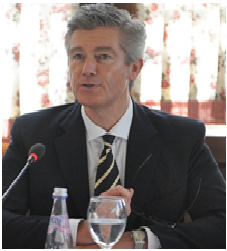Judge Malcolm Simmons hosted an excellent and highly informative seminar on the challenges facing courts hearing climate change litigation.
What delegates said about Malcolm Simmons:
“One of the most informative lectures I have attended”
– High Court Judge,
“Judge Simmons addressed many interesting topics that were truly food for thought” – District Court Judge
The seminar was attended by community groups, NGO’s and lawyers. The following is a summary of the issues raised by each of the groups.
The Community groups raised the following issues: Invisibility of and a lack of access to specialist legal advice and information on environmental law; a fear of costs both in gaining legal advice and in taking cases to Court; a lack of and a difficulty in gaining “legal aid” for funding of environmental cases; a need for specific assistance in areas of high social, economic and environmental depravation and the inequalities both in structural and resource terms that arises when members of the public take cases against companies or “the establishment”.
The lawyers and NGOs raised the following issues: a lack of expertise within the ranks of the Judiciary and the Magistrates; a perceived bias of Adjudicators towards development and commerce; problems with the rules of locus standi and problems with demonstrating direct interest; a need for better resources that allow appeals to be heard on merit, therefore reducing the pressure to use judicial review inappropriately; the winner takes all approach to costs; sentencing powers should be increased; limited scope of judicial review is the problem. The fact that judicial review could not review a decision on its merits was a big issue for a lot of respondents; difficulty in obtaining interim injunctive relief and the issues related to standing and several respondents identified a need for a specialist Environmental Court or Tribunal.
By the end of the seminar the delegates had come to the following conclusions:
- The opinions of disenfranchised groups living in environmentally fragile areas should be canvassed/considered;
- Public funding should be provided for environmental cases with a public interest element;
- The cost rules need reform. Losers should not bear their costs in non-vexatious public interest cases;
- Environmental Courts or Tribunals should be established.
